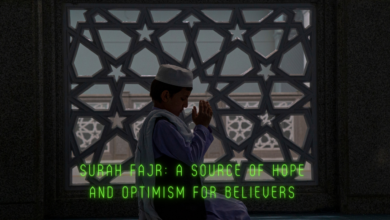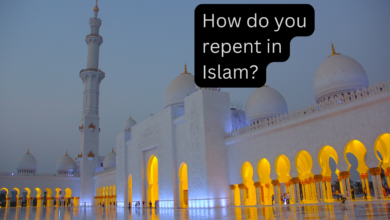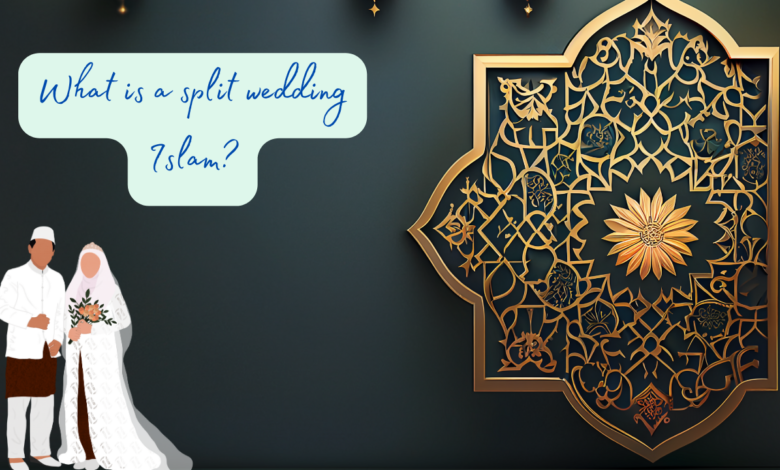
What is a split wedding Islam?
A split wedding in Islam refers to a practice where the wedding ceremony and celebrations are divided into two separate events: one for the groom’s side (Walima) and one for the bride’s side (Nikah or Ijab-e-Qubul). These events may be held on different days or at different venues.
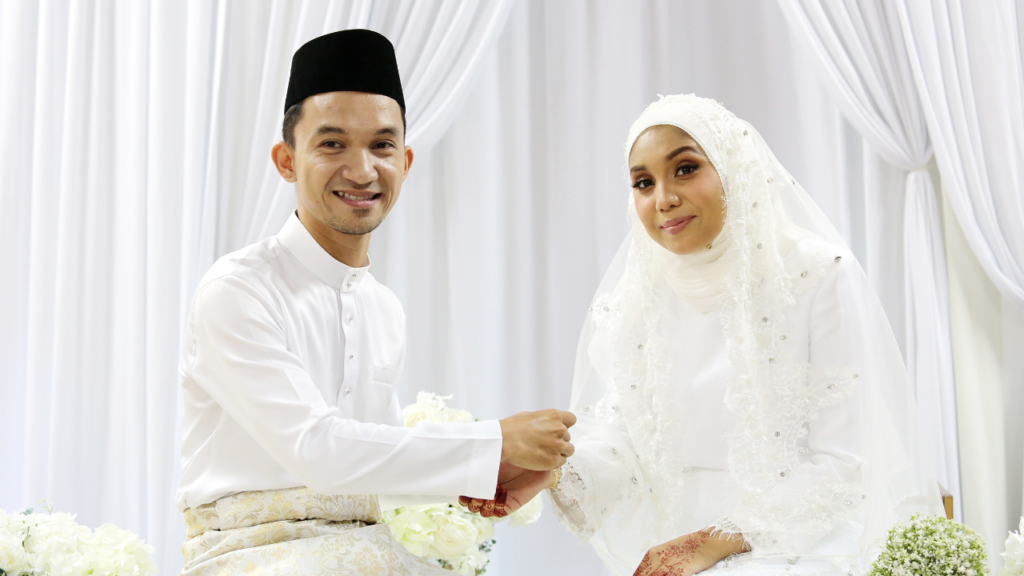
Introduction
Weddings are a cherished and significant event in the lives of individuals from various cultures and religions around the world. In Islam, marriage is considered one of the most important and sacred institutions, and the way weddings are celebrated can vary greatly depending on regional customs, cultural influences, and personal preferences. One unique aspect of Islamic weddings is the concept of a “split wedding,” which may not be widely known outside of certain regions. In this article, we will explore what a split wedding in Islam is and the cultural and religious significance it holds.
What is a Split Wedding in Islam?
A split wedding, also known as a “separate wedding” or “split walima” in Islam, is a wedding ceremony and celebration that are held on different days or at separate locations. In other words, the actual marriage contract (nikah) and ceremony take place on one day, followed by a separate celebration called the walima, which is held at a later date or a different venue. This practice is more common in some Muslim cultures than others, and the reasons behind it can vary.
Cultural Variations
The practice of having a split wedding is not universally observed in Islam and tends to be more prevalent in some regions and cultural contexts. For example, it is relatively common in South Asian countries like India, Pakistan, and Bangladesh, where cultural traditions often play a significant role in wedding ceremonies. In contrast, in many Arab countries, the entire wedding process, including the marriage contract and celebration, typically occurs on the same day.
Reasons for a Split Wedding
Several reasons may explain why some Muslims choose to have a split wedding:
- Logistical Convenience: One practical reason is that splitting the wedding into two events allows for better logistical planning. This can be especially important in large gatherings, where it might be challenging to accommodate all the guests on a single day. Additionally, it gives the couple more time to prepare and make arrangements for the grand celebration.
- Religious Observance: Some Muslims prefer to separate the nikah from the walima as a way to emphasize the religious sanctity of the marriage contract. By keeping the marriage contract a separate and solemn affair, they believe it reinforces the significance of the commitment made before God.
- Financial Considerations: Split weddings can also be a financial consideration. Hosting a large wedding celebration can be costly, and by separating the events, families can better manage their expenses.
- Cultural Tradition: In some cultures, having a split wedding is a longstanding tradition that has been passed down through generations. These traditions often hold deep cultural and familial significance.
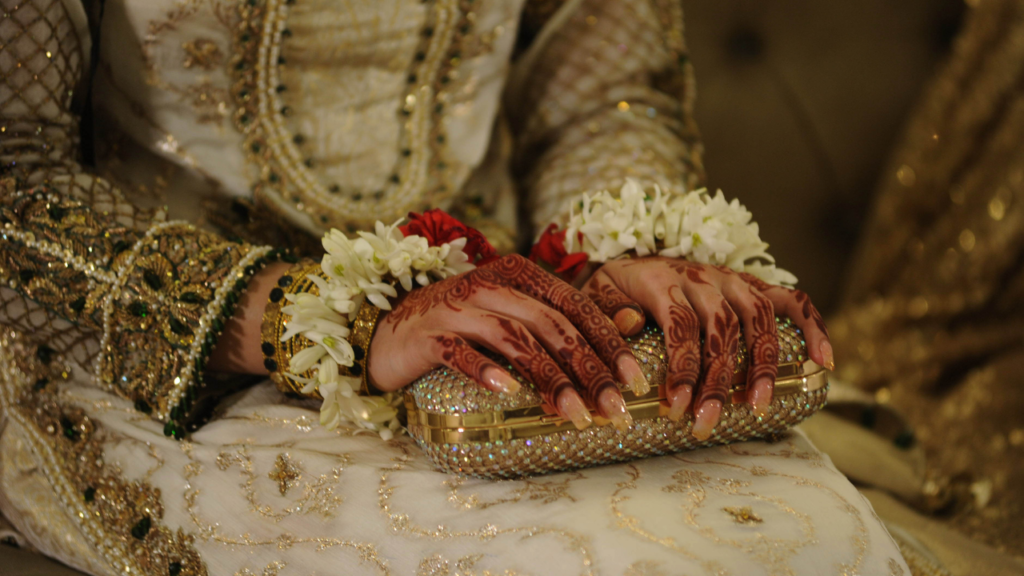
The Significance of the Walima
The walima, which is the second part of the split wedding, is a festive celebration that marks the official announcement of the marriage to the community. It is a time when family and friends come together to rejoice in the couple’s union, offer their blessings, and enjoy food and festivities. While the walima is a joyful occasion, it also serves as an opportunity for the newlyweds to receive the support and well-wishes of their loved ones.
Conclusion
In Islam, a split wedding is a unique practice that involves separating the marriage contract (nikah) from the wedding celebration (walima). This practice is influenced by cultural traditions and can vary from one region to another. While some couples choose to have a split wedding for logistical, religious, financial, or cultural reasons, the core purpose of both the nikah and the walima remains the same: to celebrate the sacred union of two individuals in the presence of their community and, most importantly, in the eyes of God.
FAQs About Split Weddings in Islam
What is a split wedding in Islam?
A split wedding in Islam refers to a practice where the wedding ceremony and celebrations are divided into two separate events: one for the groom’s side (Walima) and one for the bride’s side (Nikah or Ijab-e-Qubul). These events may be held on different days or at different venues.
What is the significance of a split wedding in Islam?
Split weddings allow both the groom’s and bride’s families to celebrate the marriage independently. It reflects the Islamic principle of ensuring that both families are involved in the wedding festivities, and it can help reduce the financial burden on one party.
Which event comes first in a split wedding – Nikah or Walima?
In Islamic tradition, the Nikah (marriage contract) ceremony typically comes before the Walima (wedding banquet). The Nikah is the official contract signing, while the Walima is a celebration of the marriage.
Is it necessary to have a split wedding in Islam?
No, it is not mandatory to have a split wedding in Islam. The practice varies among different cultures and communities. Some may choose to have a combined ceremony, while others prefer the split format.
What happens during the Nikah ceremony in a split wedding?
The Nikah ceremony involves the formal marriage contract signing in the presence of witnesses and an Islamic officiant. The bride and groom, along with their respective guardians, agree to the marriage terms and conditions.
What takes place during the Walima celebration in a split wedding?
The Walima is a festive banquet held after the Nikah, where family and friends come together to celebrate the marriage. It includes a meal, speeches, and sometimes entertainment.
Are there any specific guidelines for conducting a split wedding in Islam?
While there are no strict guidelines, it is important to ensure that both the Nikah and Walima ceremonies comply with Islamic principles, including maintaining modesty, avoiding extravagance, and adhering to gender segregation rules if applicable.
Can the split wedding format be customized to fit cultural preferences?
Yes, many communities customize the split wedding format to align with their cultural traditions. This may include incorporating cultural rituals and customs into both the Nikah and Walima celebrations.
Are there any particular blessings or prayers recited during a split wedding in Islam?
It is common for Islamic prayers and blessings to be recited during both the Nikah and Walima ceremonies. The specific prayers and supplications may vary depending on cultural and regional traditions.
Is it acceptable for the groom’s side to have a larger or more extravagant celebration in a split wedding?
– Ideally, both sides should strive for equity and avoid extravagance to ensure fairness and modesty in accordance with Islamic principles. However, customs and preferences may vary, so communication between the families is essential to maintain harmony and respect.
